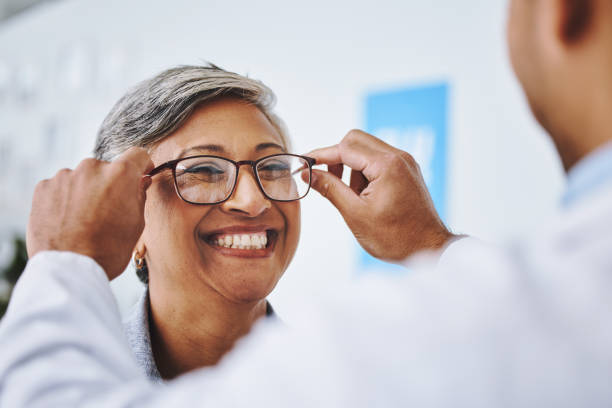Your eyes go through a lot each day. Whether you’re reading, browsing social media, or staring at a computer screen, they’re always active. But many people don’t realize that some daily habits could be quietly harming their vision over time. Taking care of your eyes now can help protect your eye health in the future.
In this article, we’ll explore the most common daily habits that hurt your vision and share practical tips to protect your eyes. Whether you wear glasses or have perfect vision, these tips apply to everyone. Maintaining good eye health is easier than you think, and small changes can have a big impact.
Why Eye Health Matters
Your eyes help you with almost everything—from reading and driving to working and watching your favorite shows. That’s why caring for them is just as important as looking after your heart or teeth. Ignoring eye care can lead to problems like:
- Eye strain
- Headaches
- Blurry vision
- Dry eyes
- Long-term vision loss
- Increased risk of eye diseases like glaucoma and cataracts
As we get older, our eyes age too. Without proper care, small vision problems can turn into bigger issues. The good news is that many of these problems can be prevented. Simple changes to your daily habits can go a long way in protecting your eyesight.

1. Too Much Screen Time
Staring at screens for long hours is now one of the top threats to eye health. Whether you’re using a phone, tablet, or computer, these devices all give off blue light. Too much blue light can cause digital eye strain, making your eyes feel tired, dry, or sore.
In today’s digital world, many people spend more than 7 hours a day looking at screens. This constant screen time can lead to serious eye discomfort, including dryness and fatigue. It can also mess with your sleep by disrupting your natural sleep-wake cycle.
Symptoms of Digital Eye Strain:
- Tired eyes
- Blurry vision
- Headaches
- Dry or watery eyes
- Neck or shoulder pain from poor posture
What You Can Do:
- Follow the 20-20-20 Rule: Every 20 minutes, look at something 20 feet away for 20 seconds.
- Use Blue Light Filters: Install screen protectors or apps that reduce blue light.
- Adjust Lighting: Avoid working in dark rooms with a bright screen.
- Take Frequent Breaks: Try the Pomodoro Technique to give your eyes a break while working.
Learn more from the American Academy of Ophthalmology.
2. Rubbing Your Eyes
Rubbing your eyes might feel comforting, but it can actually do more harm than good. This habit can spread germs, leading to eye infections. It may also cause scratches on the cornea or even a condition called keratoconus, where the cornea becomes thin and changes shape over time.
Rubbing your eyes is a common habit, especially during allergy season or when you’re feeling sleepy. But your hands often carry dirt, bacteria, and allergens. When you touch your eyes, these harmful particles can make irritation and redness even worse.
Better Habits:
- Use lubricating eye drops if your eyes feel dry or itchy.
- Apply a cold compress instead of rubbing.
- Wash your hands frequently to reduce germs near your eyes.
- Be conscious of the urge to rub and distract yourself when the urge hits.
3. Sleeping with Makeup On
If you wear makeup, it’s important to remove it before going to bed. Products like mascara, eyeliner, and eyeshadow can build up along your lash line. This can clog the tiny glands around your eyes and lead to irritation, redness, or even infections.
Leaving makeup on overnight can cause problems for your eyes. As it breaks down, it can move into the eyes and block oil glands. This raises the risk of styes, irritation, and even long-term damage to your eyelids if it happens often.
Tips to Prevent Eye Infections:
- Use a gentle, fragrance-free makeup remover.
- Wash your face thoroughly each night.
- Replace eye makeup every 3-6 months to avoid bacteria build-up.
- Avoid sharing makeup with others to prevent cross-contamination.
4. Not Wearing Sunglasses
The sun’s UV rays don’t just damage your skin—they can harm your eyes too. Spending too much time in the sun without protection can lead to serious eye problems like cataracts, macular degeneration, and even skin cancer around the eyes.
Many people remember to apply sunscreen, but they forget that sunglasses are just as important. Without proper eye protection, your eyes are exposed to harmful UV rays. Over time, this exposure can lead to lasting damage and serious eye conditions.
How to Protect Your Eyes:
- Choose sunglasses that block 100% of UVA and UVB rays.
- Wear a wide-brimmed hat for extra protection.
- Avoid direct sunlight during peak hours (10 a.m. to 4 p.m.).
- Don’t forget eye protection during cloudy days — UV rays still penetrate through clouds.
According to the Skin Cancer Foundation, eye protection is a must year-round.

5. Poor Diet
Your diet affects your vision. If you don’t get enough key vitamins and nutrients, your eyesight may suffer. Over time, poor nutrition can increase your risk of vision problems like dry eyes, night blindness, or even age-related eye diseases.
Nutrition plays a direct role in preventing age-related vision issues like macular degeneration and cataracts. Eating foods rich in vitamins A, C, and E, along with zinc and omega-3 fatty acids, can help protect your eyes as you age.
Eye-Healthy Nutrients:
- Vitamin A: Helps with night vision and prevents dry eyes.
- Lutein and Zeaxanthin: Antioxidants that protect against harmful light.
- Omega-3s: Help reduce dry eye symptoms and support retina health.
- Vitamin C & E: Help lower the risk of cataracts and age-related vision loss.
Foods to Include:
- Carrots and sweet potatoes
- Leafy greens like spinach and kale
- Fish such as salmon, tuna, and mackerel
- Eggs, especially the yolk
- Citrus fruits like oranges and grapefruits
- Nuts and seeds (almonds, chia seeds)
Check out this guide from Harvard Health for more details.
6. Skipping Regular Eye Exams
Many people only visit the eye doctor when they notice a problem. But having regular eye exams is important, even if your vision seems fine. These check-ups can find problems early, before they get worse or cause long-term damage.
Eye exams can detect not just vision problems, but signs of other health issues like high blood pressure, diabetes, and even some cancers. During a routine exam, your eye doctor may spot early warning signs that could point to serious conditions, often before you notice any symptoms.
How Often Should You Go?
- Children: Every 1-2 years
- Adults (18-60): Every 2 years
- Seniors (60+): Annually
- People with glasses or contacts: As recommended by your optometrist
Even if you have 20/20 vision, eye exams are vital for overall health. Some conditions like glaucoma or macular degeneration show no early symptoms.
7. Smoking
Smoking increases the risk of serious eye conditions such as cataracts and macular degeneration. It also reduces healthy blood flow to the eyes, which can damage the optic nerve over time. This damage may lead to vision loss or other long-term eye problems.
If you already smoke, quitting today can make a significant difference. Your eyes will start to recover, and so will your lungs, heart, and skin. The longer you stay smoke-free, the more your overall health—and your vision—can improve.
Need More Reasons to Quit?
- Higher risk of blindness from AMD
- Slower healing after eye surgery
- Increased dry eye symptoms
- Higher risk of diabetic retinopathy
The CDC has great resources to help you quit.
8. Not Staying Hydrated
Water plays a big role in eye health. When your body is dehydrated, it can’t produce enough tears, which may lead to dry, itchy, or irritated eyes. Drinking enough water each day helps keep your eyes moist and comfortable.
Many people mistake dry eyes for allergies or fatigue, but sometimes the real cause is not drinking enough water. Staying hydrated can help relieve dryness and improve overall eye comfort.
Stay Hydrated:
- Drink at least 8 cups of water a day.
- Eat water-rich foods like cucumbers, watermelon, and oranges.
- Use a humidifier if your home or office is dry.
- Limit caffeine and alcohol, which can dehydrate you.

Final Thoughts: Protecting Your Eyes Starts Today
Your eyes are precious, and protecting them doesn’t have to be complicated. Simple daily habits—like taking screen breaks, wearing sunglasses, and eating healthy—can reduce strain, prevent long-term damage, and help keep your vision clear and sharp.
Think about how much you rely on your vision every day. Whether you’re working, driving, reading, or watching your favorite show, your eyes help you do it all. Healthy vision is key to staying independent and enjoying life to the fullest.
Quick Recap:
- Limit screen time and follow the 20-20-20 rule
- Don’t rub your eyes
- Always remove makeup before bed
- Wear sunglasses with UV protection
- Eat a balanced, eye-friendly diet
- Get regular eye exams
- Avoid smoking
- Stay hydrated
Take the first step today. Pick one habit to change this week and notice the difference in how your eyes feel. Whether it’s drinking more water or booking an eye exam, every little action helps.
Have a question or a tip of your own? Share it in the comments below – we’d love to hear from you!

